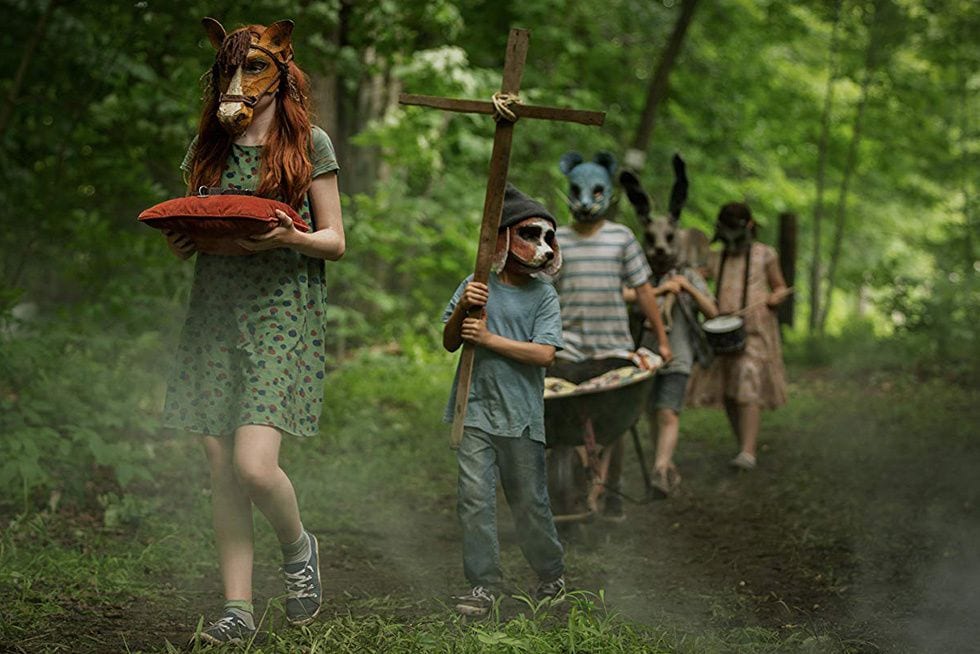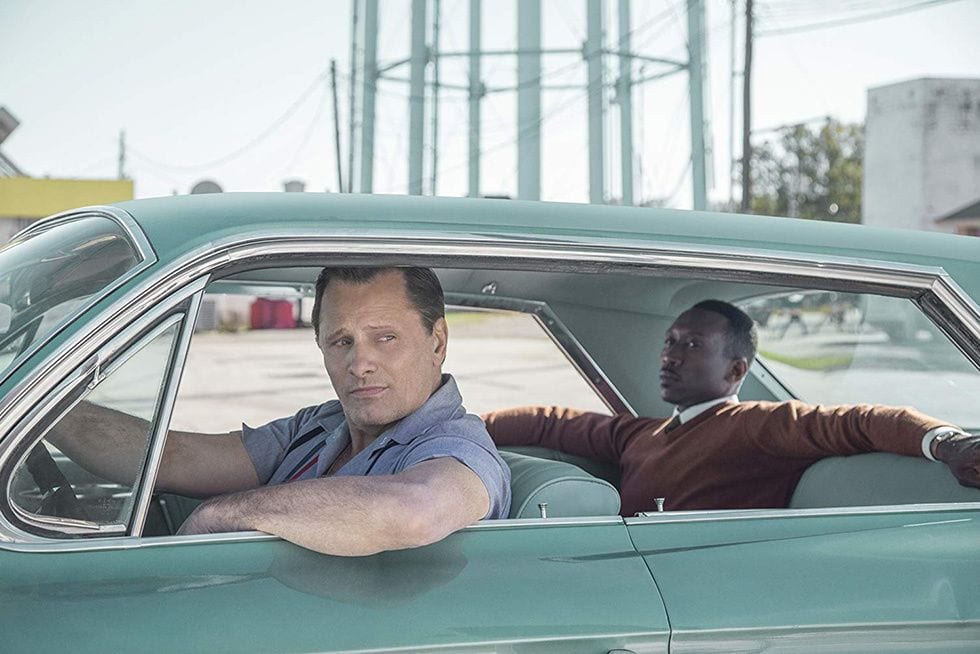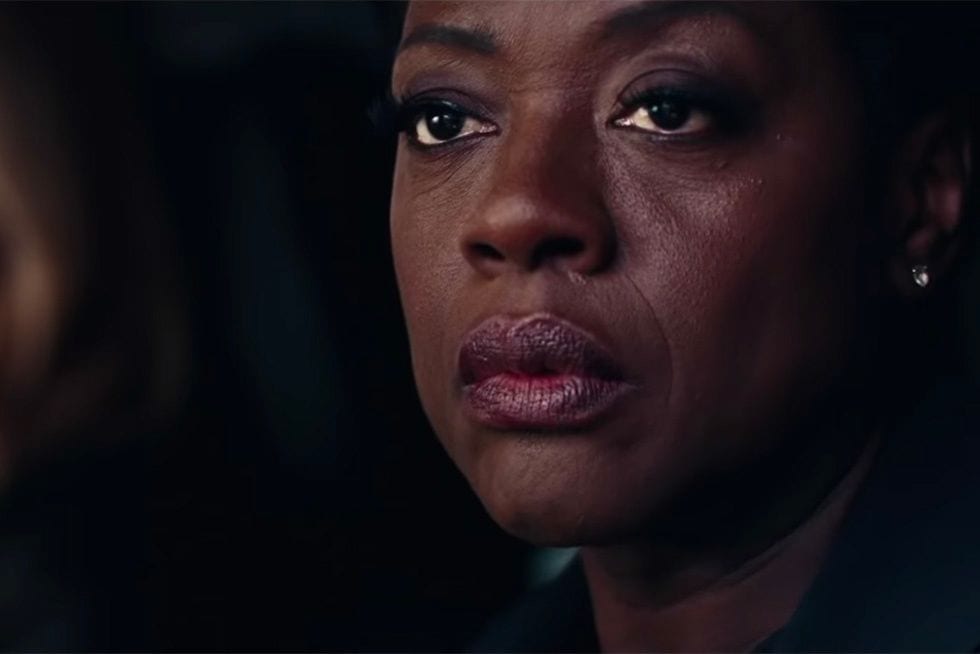
‘Hail Satan?’ Is Devilishly Fun
Documentarian Penny Lane challenges you to leave behind your preconceptions and give the Devil his due in this irreverent, entertaining look at the Satanic Temple, Hail Satan?

Documentarian Penny Lane challenges you to leave behind your preconceptions and give the Devil his due in this irreverent, entertaining look at the Satanic Temple, Hail Satan?

In existential nightmare, High Life, Claire Denis explores the darkest intersection between outer space and the human psyche.

Tense, unflinching, and completely self-aware, Pet Sematary veers away from its source material in satisfying ways, yet remains true to Stephen King's uncompromising vision.

For those curious about what awaits them on the other side of youth, Sebastián Lelio’s indie drama Gloria Bell offers an unflinching glimpse at some unforgiving terrain.

Directors Boden and Fleck skimp on the character development and emphasize the action in the disappointing misfire from the MCU, Captain Marvel.

If Beale Street Could Talk, Barry Jenkins’ eagerly anticipated follow-up to 2016’s Oscar darling Moonlight, is a beautiful rumination on love and community set against a backdrop of institutionalized racism. Each character is delicately imbued with dignity and intelligence, as Jenkins chisels this world out of lingering close-ups and Nicholas Britell‘s magnificent score. Though it sputters with repetitive story beats towards its finalé, there’s no denying the passion and urgency of Jenkins’ humanistic vision.
Barry Jenkins is a master of mood. He encourages his characters to engage the world at their own pace. Adapted from the 1974 novel by James Baldwin, Jenkins luxuriates in the romantic fantasies of Fonny (Stephan James) and Tish (KiKi Layne); two naïve black kids in America slowly realizing the futility of making plans in Civil Rights-era Harlem. Each contour, crease, and muted smile fills the frame as Jenkins allows these childhood friends to nurture their soulful love affair. They are free to shout joyously in the street after finding a loft to rent, or quietly enjoy the heat of their naked flesh as they lie in bed. Jenkins, like Fonny and Tish, wants to indulge the fantasy that being young and in love can insulate you against society’s ills.
The tragedy of If Beale Street Could Talk is watching that illusion of invulnerability get pierced over and over again. Fonny, a 22- year-old sculptor who is just starting to embrace his artistic impulses, is falsely accused of raping a neighborhood girl and locked up in prison to await trial. Tish, only 19, dutifully visits him in prison. They gaze longingly at each other, trying to convince themselves that their love will find a way to conquer the injustice standing between them.
Of course, prison is only a microcosm of the larger institutionalized racism keeping them apart. The legal system is perfectly content to let Fonny languish as he awaits trial, and since white society refuses to pay black families a living wage, the cost of legal fees for are just beyond their grasp. Further, Tish is pregnant with Fonny’s baby; a complication not received well by Fonny’s bible-thumping mother (Aunjanue Ellis), who proclaims, “I always knew you’d be the destruction of my son!”
Jenkins preserves the narrative structure of Baldwin’s novel, with an older Tish looking back (via voiceover) on the events surrounding Fonny’s incarceration. Unlike the shy, idealistic young Tish (played by KiKi Layne), the older, jaded Tish speaks with the measured restraint of a woman taught to expect little from life. She has witnessed the long, slow grind of judicial indifference. She has seen Fonny’s face grow thinner with each visit, the fresh cuts and bruises reflecting his living nightmare. Her heart is destroyed by the knowledge that her newborn son will only know his father through a series of brief prison visits. This is her life, made all the more stark when compared to the life she and Fonny envisioned for themselves so long ago.
Much of If Beale Street Could Talk plays out in subdued conversation. Tish need barely say a word to her mother Sharon (Regina King) when revealing her pregnancy, as it’s an ill-advised path taken (willingly or unwillingly) by so many girls in the neighborhood. King is a revelation as the kind but determined head of the household. After Fonny’s alleged victim fleas the country, Sharon is tasked with convincing the terrified and brutalized young woman to return and clear his name. Equally strong is Joseph Rivers as Tish’s father. He isn’t optimistic about Fonny’s chances to receive justice, but he doesn’t hesitate to hustle some stolen clothes in order to pay the legal fees. In Harlem, the law must never impede your ability to help family or friends.
Carrying the story along is the remarkable soundtrack from Britell. Interspersing jazz, blues, and classical music, Britell’s work perfectly soundtracks the cultural melting pot of Harlem. A lush chorus of strings accompanies Fonny and Tish as they share an umbrella in the rain, only to be silenced by the pounding raindrops on the roof as they make love. As Fonny surveys the piece of wood that will become his next sculpture, the mystery of artistic creation is wreathed in a cloud of swirling cigarette smoke and dissonant musical tones. Indeed, If Beale Street Could Talk is a story told through the rhythmic embrace of sound and visuals.
While Jenkins’ mastery of mood and visual composition is unquestionable, he struggles at times to find a good narrative flow. One pivotal scene stands out as a massive misfire, in which the seeds of Fonny’s demise are sown with a racist policeman (Ed Skrein). Not only is this violent scene completely at odds with Fonny’s previous characterization, it undermines the film’s themes about the insidious nature of faceless, institutionalized racism. There’s also too much repetition in the film’s second half, which continues to rely upon furtive gazes when it’s time for the characters to start using their ‘outside voices’.
Still, Jenkins’ special brand of delicate filmmaking continues to impress. If Beale Street Could Talk is an unapologetically romantic film, even in the face of impending tragedy. Unlike justice, love has not abandoned these characters. If Beale Street Could Talk boldly asserts that everyone is entitled to dream. Tish and Fonny are determined to find a brighter future; if not for themselves, then for the children.

Christian Rivers' directorial debut, Mortal Engines, is that lump of coal in your holiday movie stocking.

Director Yorgos Lanthimos provides plenty of his trademark absurdity, but The Favourite is his most accessible, painfully human film to date.

Peter Farrelly's first foray into drama, Green Book, is simplistic in its message for examining racism, but maybe that simplicity serves as the sugar coating the pill that many current Americans need to swallow.

Steve McQueen's heist caper, Widows, is ultra-slick but gets sidetracked by its goofy plot twists. No matter; Viola Davis and Elizabeth Debicki's performances make for a satisfying experience.

Director Joel Edgerton's well-intentioned drama about gay conversion therapy fails to deliver any new insight or even a good cry.